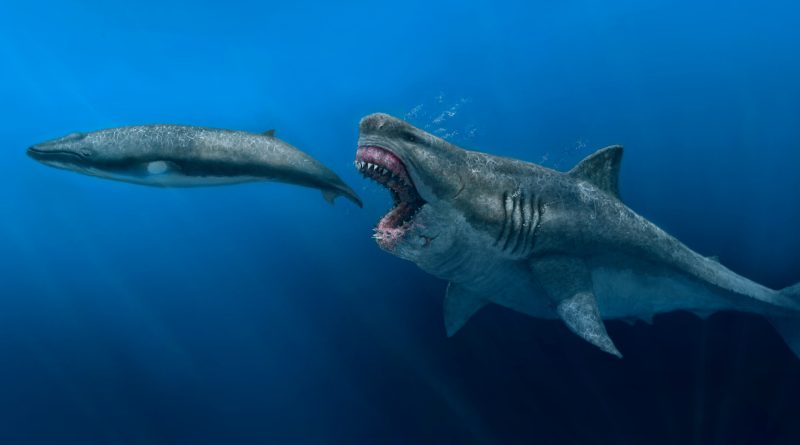The thing that killed the giant Megalodon might still live in our oceans today
The “megalodon” was a huge shark that lived in the oceans of the world for 20 million years. Then, out of nowhere, the 18-meter-long (50-foot-long) super predator vanished.
It’s a juicy piece of ancient history that has inspired a lot of books, documentaries, and blockbuster movies. Some of these like to imagine that this bloodthirsty monster is still alive and hiding somewhere out there in the deep.
Again, a new study has shown that this is not the case.
Researchers are now saying that, based on a new look at the fossil record, this huge sea creature may have been killed by the modern great white shark (Carcharodon carcharias).
It’s all about the timing. Research from the past suggests that the megalodon (Otodus megalodon) went extinct about 2.6 million years ago along with a wave of marine species. This could have been caused by a supernova that changed the climate and caused a lot of species to die out.
When the researchers looked at every fossil of a megalodon that had been found on the west coast of North America, they found that some of the samples had been misidentified and dated.
After making a lot of changes, they figured out that the shark must have gone extinct at least a million years earlier than they had thought before.
“We used to think that the extinction of O. megalodon was linked to this marine mass extinction, but now we know that’s not the case,” says Robert Boessenecker, a vertebrate paleontologist at the College of Charleston in South Carolina and the study’s lead author.
With the new timeline, there needs to be a new explanation, and Boessenecker and his team think they’ve found a big one.
Together, they say that the fossil evidence fits better with the rise of a smaller but still fierce relative of the megalodon.
About six million years ago, the first great whites showed up on Earth. At first, they only lived in the Pacific. But if you fast-forward just two million years, you’ll see that these predators had managed to spread all over the world.
Researchers think that as the megalodons moved from ocean to ocean, the great whites might have moved into their territory, making it harder for the younger megalodons to find food.
When there is a lot of competition, the fight for survival turns into a zero-sum game. As the number of available prey started to go down, the great white seems to have won.
Boessenecker says, “We think that this short overlap (3.6-4 million years ago) was enough time for great white sharks to spread around the world and outcompete O. megalodon everywhere it lived, driving it to extinction instead of radiation from space.”
The idea is interesting, but the debate about why the megalodon went extinct probably won’t end here. National Geographic talked to an expert on ancient sharks who said he is not sure that just one species can cause such a drop.
He thinks that the authors may have missed other culprits, such as the modern tiger shark, which lived in the same area as the young megalodon.
Even Boessenecker says more research is needed before this mystery can be solved.


